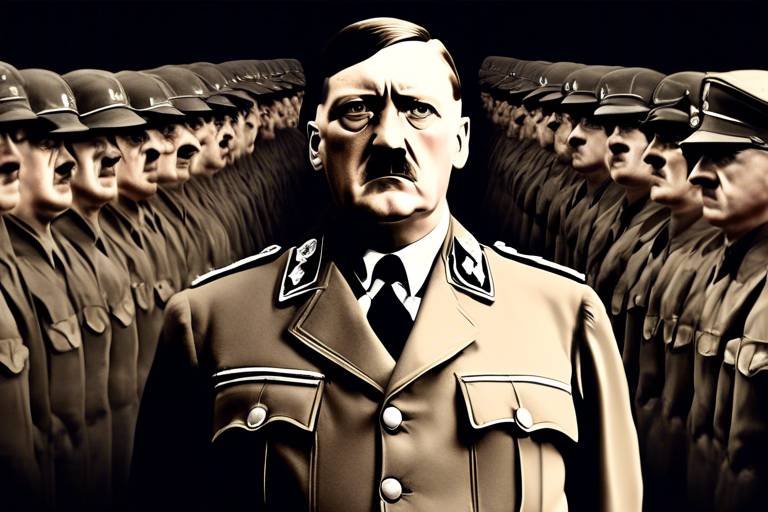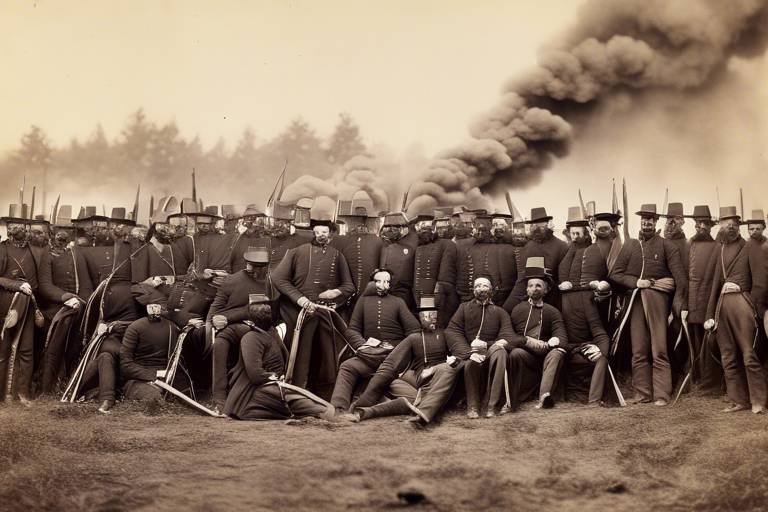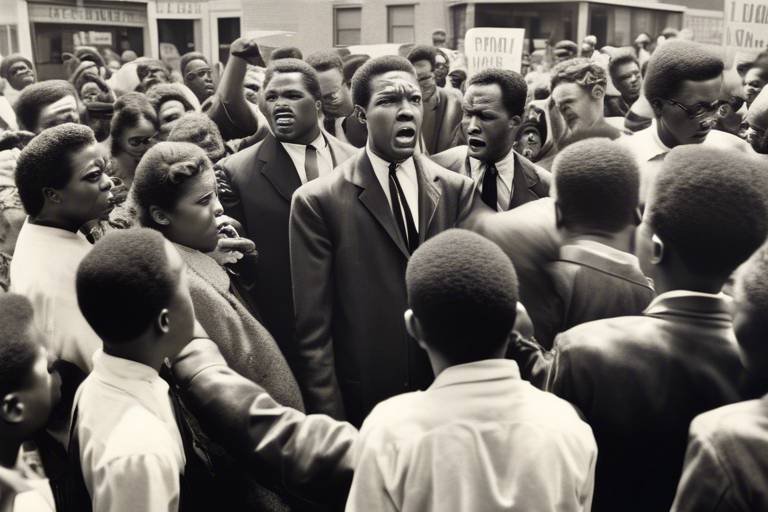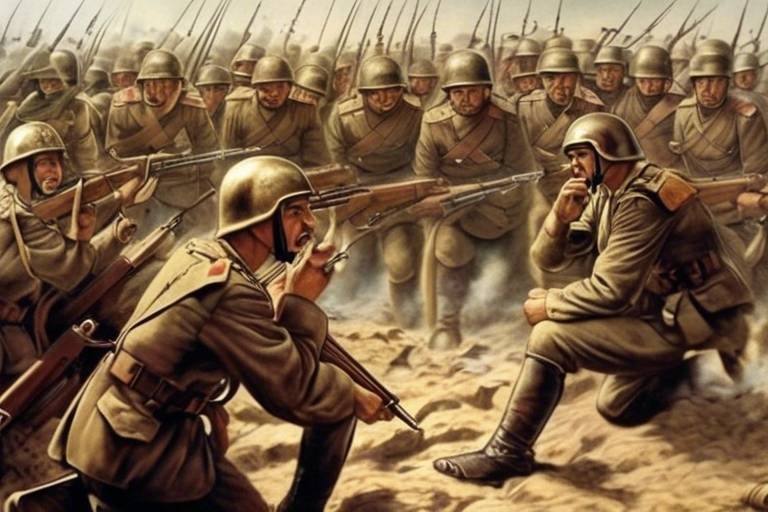The Treaty of Versailles - End of World War I
The Treaty of Versailles, signed in 1919, stands as a pivotal moment in history, marking the official end of World War I. This treaty, negotiated among the Allied powers and Germany, aimed to establish peace and set the terms for the post-war world order. However, its provisions would have far-reaching consequences that would shape the course of international relations for decades to come.

Background of World War I
The Treaty of Versailles marked the end of World War I and had significant implications for international relations. This article explores the key provisions of the treaty and its impact on the post-war world order.
A century ago, the world was plunged into the chaos of World War I, a conflict that reshaped the course of history. The war, which lasted from 1914 to 1918, was fueled by a complex web of political alliances, militarism, imperialism, and nationalism. The assassination of Archduke Franz Ferdinand of Austria-Hungary in 1914 served as the spark that ignited the powder keg of tensions in Europe, leading to a widespread conflict involving major powers such as Germany, France, Russia, and the United Kingdom.
The trenches of the Western Front became synonymous with the brutal realities of war, as soldiers faced unimaginable horrors in a stalemate that lasted for years. The war saw the introduction of new technologies of destruction, including tanks, machine guns, and chemical weapons, forever changing the nature of warfare.
The devastating human cost of the war, with millions of lives lost and countless more injured, left scars that would shape the post-war world. The world had witnessed the unimaginable destruction and loss caused by the Great War, setting the stage for the peace negotiations that would follow.

Negotiations and Signatories
During the negotiations leading to the Treaty of Versailles, the major Allied powers, including France, the United Kingdom, the United States, and Italy, played pivotal roles in shaping the terms of the agreement. The peace conference held in Versailles, France, saw intense discussions and debates as each country sought to secure its interests and objectives in the post-war era. The primary focus of the negotiations was to hold Germany accountable for the war and ensure lasting peace in Europe.
The signatories of the Treaty of Versailles were representatives from over 30 countries, with the major powers having the most significant influence on the final terms of the agreement. Notably, Germany was excluded from the negotiations and was presented with the treaty to sign, leading to resentment and a sense of injustice among the German population. The signing of the treaty marked a significant moment in history, symbolizing the official end of World War I and setting the stage for the post-war reconstruction efforts.

Key Provisions of the Treaty
The Treaty of Versailles, signed in 1919, contained several key provisions that aimed to restructure Europe and prevent future conflicts. One of the most significant provisions was the establishment of new national boundaries and territories. Germany lost significant territories, including Alsace-Lorraine to France and the Saar Basin to the League of Nations. The treaty also created new countries such as Poland, Czechoslovakia, and Yugoslavia, reshaping the map of Europe.
Another crucial provision of the Treaty of Versailles was the imposition of military restrictions on Germany. The German army was limited to 100,000 troops, and the country was forbidden to have an air force, submarines, or tanks. The goal was to weaken Germany militarily and prevent it from posing a threat to its neighbors in the future.
Reparations were also a key component of the treaty, with Germany being held responsible for the damages caused during the war. The exact amount of reparations was not specified in the treaty but was later set at 132 billion gold marks, a sum that had severe economic consequences for Germany. These reparations were a source of resentment and economic hardship for the German population.
Moreover, the Treaty of Versailles included the establishment of the War Guilt Clause, which placed full responsibility for the war on Germany and its allies. This clause was a source of humiliation for the German people and fueled nationalist sentiments, contributing to the rise of extremism in the country.
In addition to these provisions, the treaty also addressed issues such as the disarmament of Germany, the demilitarization of the Rhineland, and the creation of the League of Nations. These provisions aimed to maintain peace and stability in Europe after the devastation of World War I.

Impact on Germany
The Treaty of Versailles had a profound impact on Germany, reshaping the country both politically and economically. One of the most significant consequences for Germany was the imposition of heavy reparations, amounting to billions of dollars, which placed a massive burden on the already struggling economy. The treaty also led to the loss of significant territories, including Alsace-Lorraine, Saar Basin, and parts of Prussia, affecting Germany's geographical and strategic position.
Militarily, Germany was severely restricted by the treaty, with strict limitations placed on its army, navy, and air force. The demilitarization of the Rhineland and the prohibition of conscription further weakened Germany's military capabilities and national defense. These military restrictions not only impacted Germany's security but also its national pride and sense of sovereignty.
Politically, the Treaty of Versailles fueled resentment and humiliation among the German population, providing fertile ground for extremist ideologies to take root. The harsh terms of the treaty were exploited by nationalist and militaristic factions, paving the way for the rise of radical political movements like the Nazi Party under Adolf Hitler.
Economically, the reparations demanded by the treaty drained Germany's resources and hindered its ability to recover from the devastation of World War I. The hyperinflation that followed, coupled with the Great Depression in the 1930s, plunged Germany into economic chaos, leading to widespread poverty, unemployment, and social unrest.
Furthermore, the Treaty of Versailles shattered Germany's perception of fairness and justice in the international community, fostering a deep sense of betrayal and isolation. The punitive nature of the treaty sowed the seeds of resentment and disillusionment, fueling a desire for revenge and retribution among the German populace.

League of Nations
The League of Nations was established as part of the Treaty of Versailles with the aim of promoting international cooperation and preventing future conflicts. It served as a forum for member countries to resolve disputes through diplomacy and collective security measures. The League's structure included an Assembly where all members had representation, a Council composed of major powers, and various specialized agencies. Additionally, the League had the power to impose economic sanctions or military action against aggressor states to maintain peace and security.

Global Reaction and Criticism
The Treaty of Versailles marked the end of World War I and had significant implications for international relations. This article explores the key provisions of the treaty and its impact on the post-war world order.
A brief overview of the events leading up to World War I, including the causes of the conflict and the major parties involved.
Insight into the negotiations that took place during the drafting of the Treaty of Versailles and the countries that were signatories to the agreement.
An in-depth look at the major provisions outlined in the Treaty of Versailles, including territorial changes, military restrictions, and reparations.
Exploration of how the Treaty of Versailles specifically impacted Germany, both politically and economically, and the long-term consequences for the country.
Discussion on the establishment of the League of Nations as part of the treaty and its role in maintaining peace and security in the aftermath of World War I.
An analysis of the international reaction to the Treaty of Versailles, including the criticisms leveled against its terms and conditions.
Examination of how the Treaty of Versailles contributed to the rise of totalitarian regimes in Europe, such as fascism in Italy and Nazism in Germany.
Reflection on the lasting impact of the Treaty of Versailles on world history and the lessons learned from the post-World War I peace process.

Rise of Totalitarianism
After the devastation of World War I, the Treaty of Versailles played a pivotal role in shaping the political landscape of Europe. However, one of the unintended consequences of the treaty was the rise of totalitarian regimes in the region. The stringent terms imposed on Germany, including massive reparations and territorial losses, created a sense of humiliation and resentment among the German population. This fertile ground of discontent provided a breeding ground for extremist ideologies to take root.
As the Weimar Republic struggled to cope with the economic hardships and social unrest brought about by the treaty, extremist groups such as the National Socialist German Workers' Party, led by Adolf Hitler, gained traction. The promise of restoring Germany to its former glory and undoing the perceived injustices of Versailles resonated with many disillusioned citizens.
The rise of totalitarianism was not limited to Germany alone. In Italy, Benito Mussolini capitalized on similar sentiments of national pride and economic instability to establish a fascist regime. The Treaty of Versailles indirectly fueled the growth of these authoritarian movements by creating conditions ripe for exploitation.
Furthermore, the limitations imposed on Germany's military capabilities by the treaty inadvertently contributed to the militarization of these regimes. In their quest to rearm and assert dominance, totalitarian leaders exploited the weaknesses of the post-war order, ultimately leading to the outbreak of World War II.

Legacy and Lessons Learned
As we reflect on the legacy of the Treaty of Versailles, it becomes evident that its repercussions were profound and far-reaching. The treaty's terms not only shaped the immediate post-World War I era but also laid the groundwork for future conflicts and geopolitical dynamics. One of the most significant lessons learned from the Treaty of Versailles is the importance of finding a balance between punitive measures and long-term stability in the aftermath of a major conflict.
The treaty's harsh treatment of Germany, particularly in terms of territorial losses, military restrictions, and hefty reparations, fueled resentment and economic instability in the country. This environment of discontent and economic hardship created fertile ground for the rise of extremist ideologies, ultimately paving the way for the emergence of totalitarian regimes in Europe.
Moreover, the failure of the League of Nations to prevent further aggression and maintain peace highlighted the limitations of international organizations in ensuring global security. The League's ineffectiveness in addressing rising tensions and conflicts underscored the need for more robust mechanisms for conflict resolution and peacekeeping.
From the legacy of the Treaty of Versailles, we learn the importance of addressing the root causes of conflicts, fostering cooperation among nations, and promoting diplomacy over punitive measures. The treaty serves as a cautionary tale of the unintended consequences of shortsighted policies and the necessity of seeking sustainable solutions to complex international issues.
Frequently Asked Questions
- What was the Treaty of Versailles?
The Treaty of Versailles was a peace treaty signed in 1919 that officially ended World War I. It was one of the peace treaties that ended the state of war between Germany and the Allied Powers.
- What were some key provisions of the Treaty of Versailles?
Some key provisions of the Treaty of Versailles included territorial changes, military restrictions on Germany, and the imposition of reparations on the country for the damages caused during the war.
- How did the Treaty of Versailles impact Germany?
The Treaty of Versailles had a significant impact on Germany, leading to political instability, economic hardships, and a sense of humiliation among the German population. The treaty's harsh terms contributed to social unrest and paved the way for the rise of extremist ideologies in the country.
- What was the League of Nations and its role in the aftermath of World War I?
The League of Nations was an international organization established as part of the Treaty of Versailles to promote peace and cooperation among nations. It aimed to prevent future conflicts through diplomacy and collective security measures.
- How did the Treaty of Versailles contribute to the rise of totalitarianism in Europe?
The harsh conditions imposed on Germany by the Treaty of Versailles, coupled with economic hardships and political instability, created a fertile ground for the rise of totalitarian regimes in Europe. The treaty's impact on Germany's economy and national pride played a significant role in the emergence of fascist and authoritarian governments in the region.
- What lessons were learned from the Treaty of Versailles?
One of the key lessons learned from the Treaty of Versailles was the importance of seeking a balanced and sustainable peace settlement after a major conflict. The treaty's punitive approach and failure to address underlying issues ultimately contributed to the outbreak of World War II, highlighting the need for a more inclusive and collaborative approach to post-war reconstruction.



















